In the Name of the People is a american film of genre Documentary released in USA on 1 march 1985 with Martin Sheen
In the Name of the People (1985)
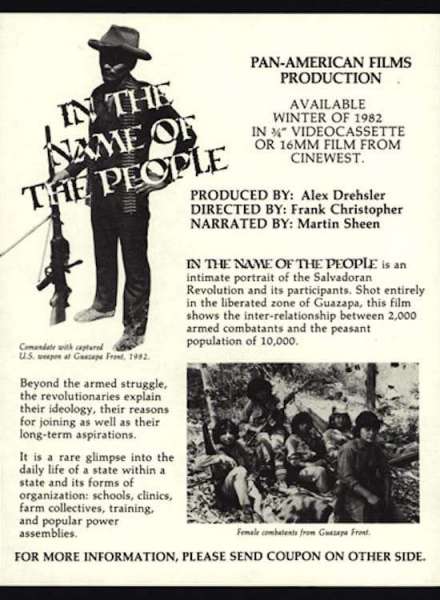
If you like this film, let us know!
In the Name of the People is a 1985 American documentary film directed by Frank Christopher about the Salvadoran Civil War. The film follows four filmmakers who secretly entered El Salvador, marched with guerrillas across the country, and followed them into combat against government forces in San Salvador. It was nominated for an Academy Award for Best Documentary Feature.
^ "NY Times: In the Name of the People". NY Times. Retrieved 2008-11-16.
Actors

Martin Sheen
(Narrator)
Comments
Leave comment :
Suggestions of similar film to In the Name of the People
There are 96 films with the same actors, 8961 with the same cinematographic genres, 8197 films with the same themes (including 867 films with the same 3 themes than In the Name of the People), to have finally 70 suggestions of similar films.If you liked In the Name of the People, you will probably like those similar films :
 , 1h27
, 1h27Directed by Bill Couturié
Origin USA
Genres War, Documentary
Themes Politique, Documentary films about war, Documentary films about historical events, Political films
Actors Tom Berenger, Ellen Burstyn, Sean Penn, J. Kenneth Campbell, Martin Sheen, Richard Chaves
Rating78%





Le documentaire est basé sur une lecture de lettre envoyées par de jeunes soldats américains à leur famille pendant la guerre du Viêt Nam, sur fond de documents d'archives. La lecture réalisée par de célèbres acteurs américains. Il présente la guerre du Viêt Nam selon le point de vue des jeunes soldats américains, de façon chronologique et ancrée dans l'histoire réelle.
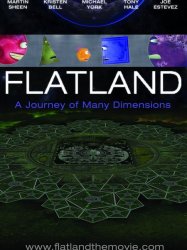
Flatland: The Movie (2007)
, 34minutesOrigin USA
Genres Documentary
Themes Political films
Actors Kristen Bell, Tony Hale, Martin Sheen, Michael York, Joe Estevez
Rating67%





Flatland: The Movie begins with the 2-dimensional Arthur Square awaking from a dream of strange, glowing symbols. He lives with his wife, Arlene Square, and his curious granddaughter Hex, a hexagon. He rushes Hex to school and along the way they discuss the laws of inheritance: how each new generation of Flatlanders, beginning with triangles, gains a new side until the shapes become indistinguishable from circles. They also discuss how a citizen's shape affects their job, with triangles performing menial labor and circles ruling Flatland in the priest class. They witness a cruel incident where a Circle Priest arrests a slightly irregular octagon child, prompting Hex to yet again wonder about what happened to her pentagonal parents. Arthur tells her that he will tell her someday, and rushes her off to school.
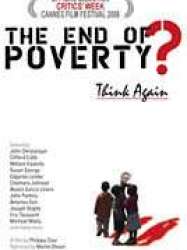
The End of Poverty? (2008)
Directed by Philippe Díaz
Genres Documentary
Themes Documentaire sur une personnalité, Documentary films about politics, Political films
Actors Martin Sheen, Susan George
Rating73%





The aphorism "The poor are always with us" dates back to the New Testament, but while the phrase is still sadly apt in the 21st century, few seem to be able to explain why poverty is so widespread. Activist filmmaker Philippe Diaz examines the history and impact of economic inequality in the third world in The End of Poverty?, and makes the compelling argument that it's not an accident or simple bad luck that has created a growing underclass around the world. Diaz traces the growth of global poverty back to colonization in the 15th century, and features interviews with a number of economists, sociologists, and historians who explain how poverty is the clear consequence of free-market economic policies that allow powerful nations to exploit poorer countries for their assets and keep money in the hands of the wealthy rather than distributing it more equitably to the people who have helped them gain their fortunes. Diaz also explores how wealthy nations (especially the United States) seize a disproportionate share of the world's natural resources, and how this imbalance is having a dire impact on the environment as well as the economy.
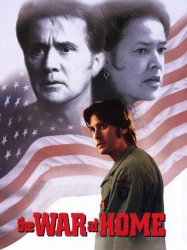
The War at Home (1996)
, 1h59Directed by Emilio Estevez
Origin USA
Genres Drama, War, Documentary
Themes Politique, Political films
Actors Emilio Estevez, Kathy Bates, Martin Sheen, Kimberly Williams-Paisley, Corin Nemec, Ann Hearn
Rating68%





Estevez plays Jeremy Collier, a returning Vietnam War hero whose experiences leave him unable to adjust to the quiet realities of small town life. The film discusses the hidden costs of war on those who fight.
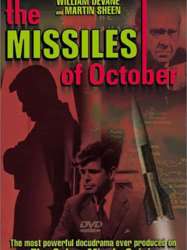
The Missiles of October (1974)
, 2h30Directed by Anthony Page
Origin USA
Genres Drama, Documentary
Themes Films about families, Political films
Actors William Devane, Martin Sheen, Howard Da Silva, Ralph Bellamy, James Hong, Michael Lerner
Rating80%





Le film retrace la crise des missiles de Cuba.

Alive: 20 Years Later (1993)
, 51minutesGenres Documentary
Themes Sports films, Transport films, Aviation films, Rugby, Documentary films about historical events, Documentary films about technology, Disaster films, Films about aviation accidents or incidents
Actors Martin Sheen, Kathleen Kennedy, Frank Marshall, Peter James
Rating71%






Barricades (1969)
, 1h5Directed by Ram Loevy
Origin Israel
Genres Documentary
Themes Films set in Africa, Films about religion, Documentary films about law, Documentary films about war, Documentary films about historical events, Documentaire sur une personnalité, Documentary films about politics, Documentary films about religion, Political films, Films about Jews and Judaism
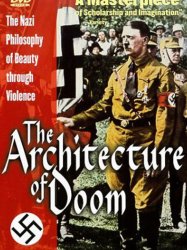
The Architecture of Doom (1989)
, 1h59Genres Documentary
Themes Documentary films about architecture, Documentary films about the visual arts, Documentary films about war, Documentary films about historical events, Documentary films about politics, Political films, Documentary films about World War II
Actors Bruno Ganz, Jeanne Moreau
Rating79%






About Baghdad (2005)
, 1h30Directed by Sinan Antoon
Origin USA
Genres War, Documentary
Themes Documentary films about war, Documentary films about historical events, Documentary films about cities, Political films
Rating66%





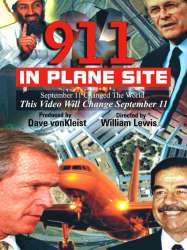
911 in Plane Site (2004)
, 1h12Origin USA
Genres Documentary
Themes Films based on the September 11 attacks, Films about religion, Films about terrorism, Transport films, Aviation films, Documentary films about law, Documentary films about war, Documentary films about historical events, Documentary films about politics, Documentary films about religion, Documentary films about technology, Documentary films about terrorism, Political films, Films about Islam, Disaster films, Films about aviation accidents or incidents, Films about hijackings
Rating69%





 Connection
Connection